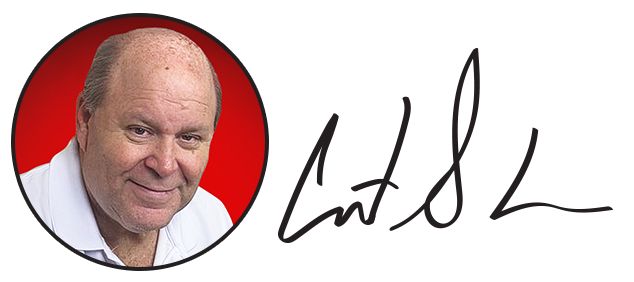
Navigating a career gap can be a challenging experience, but with the right approach, you can turn this time into an opportunity for growth and transformation. Whether your career break was due to personal reasons, health challenges, or a layoff, it's possible to explain your gap confidently and use it to demonstrate your resilience and value in job interviews. In this blog post, we’ll explore how to handle a career gap with confidence, share tips for explaining it during interviews, and offer advice on upskilling and staying proactive during your job transition.
1. Embrace the Career Gap as Part of Your Journey
First and foremost, it's important to shift your mindset about the career gap. Rather than seeing it as a negative, view it as an integral part of your career story. Taking time off for personal growth, learning, or family responsibilities can be seen as a sign of strength and adaptability. Employers value candidates who are self-aware and can handle life’s challenges with poise and professionalism.
2. Confidence During Interviews: Be Honest and Positive
When you’re asked about a career gap in an interview, it’s essential to answer with confidence. Honesty is key, but your response should focus on what you learned and how you used the time to grow. Here are a few tips to confidently explain your career gap during an interview:
-
Frame It Positively: Focus on the positive aspects of your time away from work. Did you gain new skills, pursue personal growth, or travel? Maybe you were taking care of a loved one or recharging after a stressful period. Highlight how these experiences have shaped you as a more well-rounded, focused professional.
-
Be Brief but Clear: Address the gap briefly but avoid over-explaining. You don’t need to go into excessive detail. A simple, honest explanation followed by what you learned or how you used that time effectively will suffice.
-
Emphasize How You’re Ready to Return: Make it clear that you’re excited to return to the workforce and have taken proactive steps to ensure you're up-to-date and ready for new challenges. This shows you're not only prepared but eager to contribute again.
3. Upskill During Your Career Gap
One of the best ways to handle a career gap with confidence is by staying active and committed to learning. Upskilling is a powerful way to demonstrate your value during your job transition. Here’s how you can make the most of your gap:
-
Take Online Courses or Certifications: Use platforms like LinkedIn Learning, Coursera, or Udemy to learn new skills relevant to your field. By gaining new certifications, you show potential employers that you are committed to staying current with industry trends.
-
Volunteer or Freelance: If possible, consider volunteering or freelancing during your gap. This allows you to stay engaged in your field and demonstrates your ability to apply your skills in real-world situations. Plus, these experiences can be added to your resume to bridge the gap and show continuous professional activity.
-
Build a Portfolio or Personal Projects: If you’re in a creative or technical field, use the time to work on personal projects. Building a portfolio can showcase your skills and keep your resume looking fresh. Personal projects also reflect initiative and a passion for your profession.
4. Stay Proactive and Network
Being proactive is key when managing a career gap. Rather than waiting passively for job opportunities, take an active approach to your job search and professional development:
-
Network Regularly: Stay connected with your professional network by attending industry events (in person or virtually), joining professional groups on LinkedIn, and reaching out to former colleagues. Networking not only keeps you in the loop with job opportunities but also helps you learn about industry trends.
-
Join Career Transition Communities: Communities like the CNC community offer a support system for professionals in job transition. Sharing experiences, receiving advice, and getting feedback from others who are in similar situations can provide motivation and practical tips.
-
Set Realistic Goals: Create a clear action plan for your job search and set weekly or monthly goals. Whether it’s applying to a set number of jobs or completing a course, setting goals helps you stay focused and motivated during your career transition.
5. Boost Your Confidence: Focus on Your Strengths
Finally, handling a career gap with confidence also involves focusing on your strengths. Remind yourself of what you bring to the table and how your past experiences, including your career gap, have made you stronger. Reflect on your skills, values, and the unique perspective you offer as a candidate.
-
Update Your Resume: Make sure your resume reflects your most recent experiences, including any learning, volunteer work, or freelance projects you’ve completed. Be sure to emphasize the skills and experiences that make you a strong candidate.
-
Prepare for Common Interview Questions: Be ready to answer other common interview questions with confidence, such as, “Why did you leave your previous job?” and “What do you think you can bring to this role?” Practice your responses so you can feel calm and prepared when it’s your time to shine.
Conclusion
Handling a career gap with confidence is all about mindset and preparation. Use your time away from work to learn new skills, stay active in your field, and keep building your professional network. When the time comes to explain your career gap in an interview, do so with honesty, positivity, and a focus on what you’ve gained during your time away. By staying proactive and confident, you’ll set yourself up for success as you transition back into the workforce.
Remember, career gaps are a natural part of life’s journey, and with the right approach, you can turn yours into an opportunity to grow, learn, and succeed. Stay focused, upskill, and most importantly—believe in your value!

Curt Skene
FOUNDER
Career Network Club